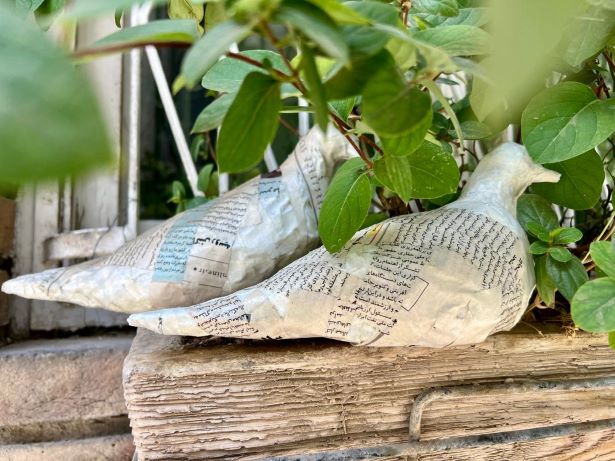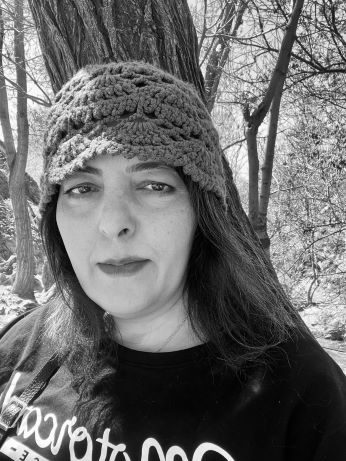
When she ran out of plain newspaper for crafting, she used scraps of old newspapers.
By Pooneh Nedaei
Editor-in-Chief of Shokrān Magazine- Iran
TEHRAN: When President Donald Trump warned Tehranis to evacuate the city immediately, I wrote:
“Don’t tell me to leave Tehran. I will stay—to hold the city for those who didn’t have the strength to remain.”
Those citizens who stayed during the twelve-day onslaught whether out of courage, resilience, indifference, lack of a countryside villa, inability to leave, financial limitations, caretaking responsibilities, or simply having no other choice, became Tehran’s vital human and living capital.
Their presence was a form of resistance that, at the very least, kept the international human rights organizations from ignoring that people were still in Iran’s capital.
I don’t know… In an age of brutality where humanity seems to lose its original meaning in creation, perhaps staying and giving meaning to the act of being matters.
I pass no judgment on those who fled the city during the war. Everyone reacts differently to crises, depending on mental state, age, and personal circumstances. Each person has a right to their choice.
But I’ve thought deeply about our decision—mine, my family’s, and my friends’—to stay during those twelve days. Not once did I waver in that decision. It’s true, I don’t own a villa outside the city or a family home in the countryside. But even if I did, I doubt I could have detached myself from this city and my home. Beyond my family, my plants, and my cats—even leaving the city itself felt like abandonment.

At times, amid the chaos of war, I wondered: Have I lost the basic human instinct of fear—the instinct to flee for survival? Has the experience of the eight-year Iran-Iraq War somehow toughened me, made me world-weary? Have I grown so disillusioned with life that survival no longer feels urgent? Or perhaps … have I finally discovered the courage to live through crises?
Maybe all those who chose to stay in Tehran asked themselves these very same questions.
Truly, our collective psychoanalysis—those of us who remained during those heavy twelve days—holds value. Its result is a kind of unspoken wisdom that future generations, untouched by war, may one day benefit from.
What settled deeply in my heart was a sense of defiance – a will to guard our land and homeland in the darkest of hours. Even if I lacked the strength or means to fight, the intention of those of us who stayed cannot be expressed. It was the feeling of protecting the land. Because the force of will is the greatest power – it can bring any demon to its knees.
I believe those who left Tehran during those days carried the memory of the city and the soil in their hearts—and many have returned, renewed in spirit, determined to defend their homeland.
Amazingly, in these recent days, our appreciation for our land and our country seems to have taken on a new strength in our hearts.
These days, alongside my work in journalism—covering the latest news and analysis about the war between Israel and Iran—I find myself occupied with making. For me, this is a form of




